
Inhaca Island: Mozambique's Hidden Gem
Inhaca Island, located just off the coast of Mozambique, is a tropical paradise known for its stunning beaches, vibrant marine life, and lush landscapes. This small island, only a short boat ride from Maputo, offers a peaceful escape from the hustle and bustle of city life. Its pristine white sands and crystal-clear waters make it an ideal spot for sunbathing, swimming, and snorkeling. Beyond its beaches, Inhaca Island boasts diverse ecosystems, including mangroves, coral reefs, and coastal forests. These habitats are home to a wide range of wildlife, making the island a haven for nature lovers and bird watchers. Visitors can explore the island's natural beauty on foot or by boat, with guided tours available to enhance the experience. For those interested in the local culture, Inhaca Island offers a glimpse into traditional Mozambican life. The island's small villages provide an opportunity to meet friendly locals and learn about their customs and way of life. With its combination of natural beauty and cultural richness, Inhaca Island is a must-visit destination for any traveler to Mozambique.
Local tips in Inhaca Island
- Pack light, breathable clothing and plenty of sunscreen to stay comfortable in the tropical climate.
- Bring cash, as ATMs and card payment options are limited on the island.
- Book boat transfers in advance, especially during peak tourist seasons, to ensure availability.
- Explore the island on foot or by bicycle to fully appreciate its natural beauty and tranquil atmosphere.
- Visit the local markets to experience traditional Mozambican cuisine and buy handcrafted souvenirs.
Inhaca Island: Mozambique's Hidden Gem
Inhaca Island, located just off the coast of Mozambique, is a tropical paradise known for its stunning beaches, vibrant marine life, and lush landscapes. This small island, only a short boat ride from Maputo, offers a peaceful escape from the hustle and bustle of city life. Its pristine white sands and crystal-clear waters make it an ideal spot for sunbathing, swimming, and snorkeling. Beyond its beaches, Inhaca Island boasts diverse ecosystems, including mangroves, coral reefs, and coastal forests. These habitats are home to a wide range of wildlife, making the island a haven for nature lovers and bird watchers. Visitors can explore the island's natural beauty on foot or by boat, with guided tours available to enhance the experience. For those interested in the local culture, Inhaca Island offers a glimpse into traditional Mozambican life. The island's small villages provide an opportunity to meet friendly locals and learn about their customs and way of life. With its combination of natural beauty and cultural richness, Inhaca Island is a must-visit destination for any traveler to Mozambique.
When is the best time to go to Inhaca Island?
Iconic landmarks you can’t miss
Island of Mozambique
Explore the Island of Mozambique, a UNESCO World Heritage site, rich in history, stunning architecture, and vibrant local culture.
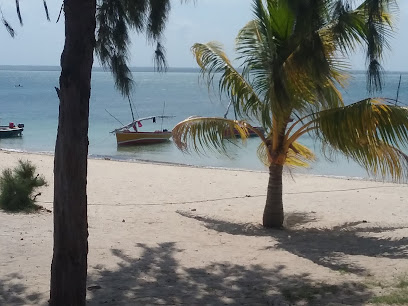
Casa de Ferro
Explore the unique Casa de Ferro in Maputo, an architectural gem showcasing Mozambique's rich history and cultural heritage.
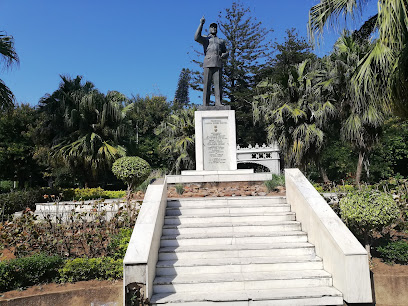
BEMUGI'S PLACE restaurants boats accommodation
Discover the charm of BEMUGI'S PLACE in Maputo, where comfort meets the beauty of the Mozambican coast for an unforgettable getaway.

Machangulo Beach Lodge
Discover the ultimate tropical retreat at Machangulo Beach Lodge, where luxury meets nature on the stunning shores of Inhaca Island.

Fernando Nhaca Lodge
Discover the tranquil beauty of Fernando Nhaca Lodge on Inhaca Island—a perfect getaway for nature lovers and adventure seekers alike.
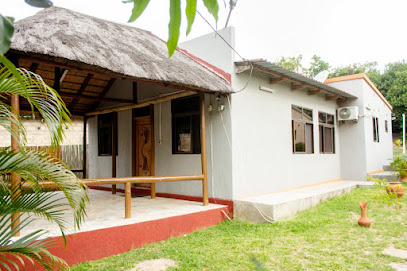
Nahyeeni Lodge
Discover the beauty of Inhaca at Nahyeeni Lodge, where comfort meets nature for an unforgettable getaway in Mozambique.
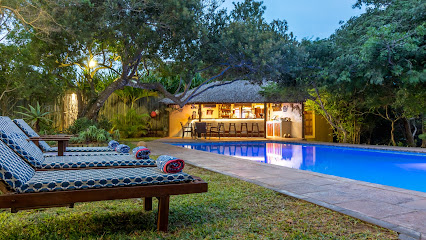
Inhaca Island Snorkel Reserve
Explore the vibrant marine life and stunning beaches at Inhaca Island Snorkel Reserve, a must-visit scenic spot in Mozambique.
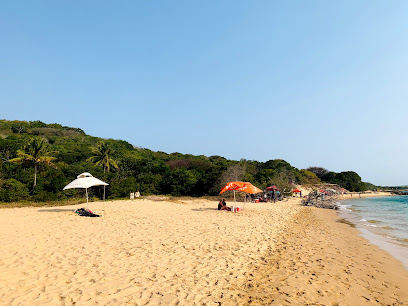
Nhoxani Beach Villas
Experience the beauty of Mozambique at Nhoxani Beach Villas, where stunning ocean views and tranquil surroundings await your arrival.
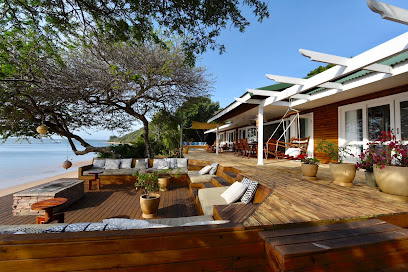
Manico Camp
Experience the serene beauty of Manico Camp on Inhaca Island, where nature meets comfort for an unforgettable getaway.
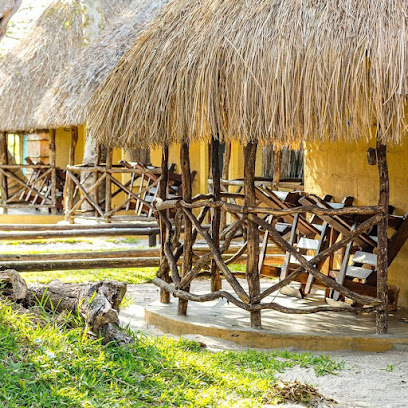
Mamas Lodge
Experience the tranquility of Mamas Lodge on Inhaca Island, where stunning views and vibrant culture meet for an unforgettable getaway.

Kanimambo Lodge
Discover tranquility and adventure at Kanimambo Lodge on Inhaca Island, where stunning landscapes meet exceptional hospitality.
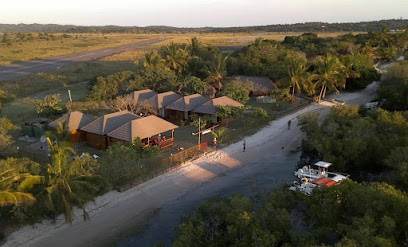
Balistidae at Nhoxani
Experience the beauty of Inhaca at Balistidae, a charming holiday apartment rental on Santa Maria peninsula, perfect for relaxation and adventure.
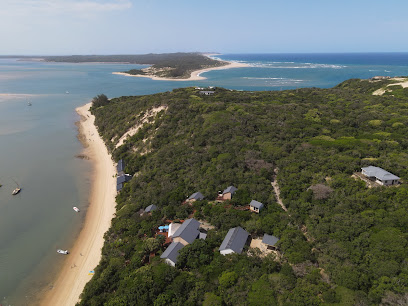
Erca Bar, Restaurant & Pub And Everything
Experience the vibrant flavors of Mozambique at Erca Bar, Restaurant & Pub in Inhaca – a perfect blend of food, fun, and stunning views.
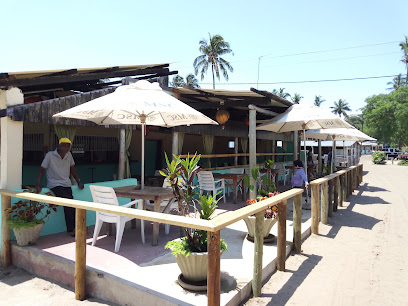
Pestana Inhaca Hotel
Discover the beauty of Inhaca Island at Pestana Inhaca Hotel, where tropical comforts meet breathtaking ocean views.

Farol de Inhaca
Discover the Farol de Inhaca: A historic lighthouse offering breathtaking ocean views and rich cultural experiences on Inhaca Island.
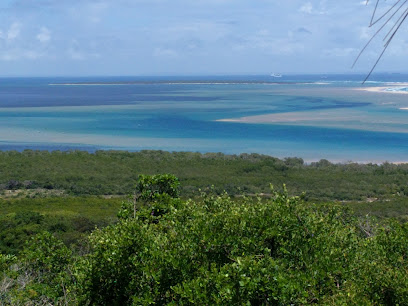
Unmissable attractions to see
Reserve Inhaca
Discover the natural beauty and tranquility of Reserve Inhaca, Mozambique—an unspoiled paradise for nature lovers and adventure seekers.
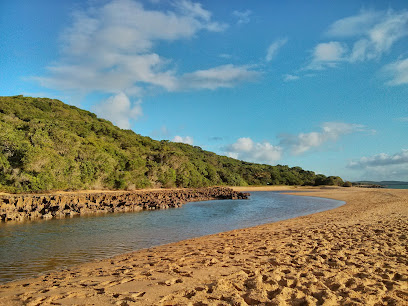
Inhaca Island Snorkel Reserve
Explore the vibrant marine life and serene beauty of Inhaca Island Snorkel Reserve, a must-visit destination for snorkeling enthusiasts and nature lovers.
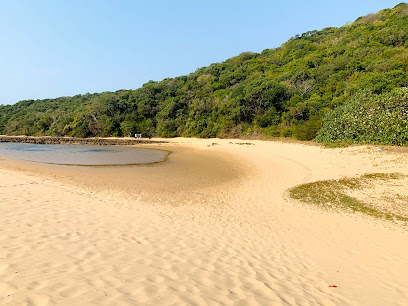
Louis Tregardt Trek Memorial Garden
Discover the captivating blend of history and nature at the Louis Tregardt Trek Memorial Garden in Maputo, a serene oasis for reflection and relaxation.
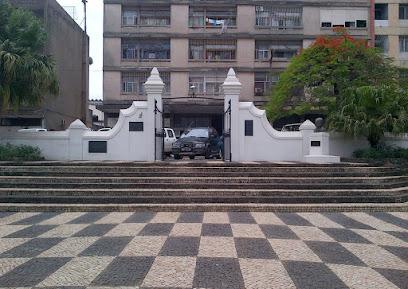
Maputo Street Art
Explore the vibrant street art of Maputo, a cultural landmark showcasing the creativity and spirit of Mozambique through stunning murals.
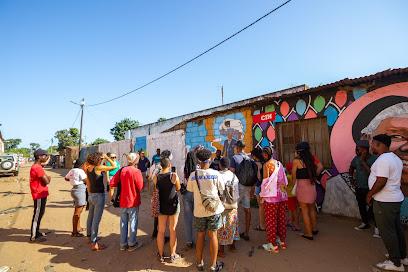
Inhaca Pier
Explore the breathtaking beauty of Inhaca Pier, a stunning gateway to pristine beaches and vibrant marine life on Inhaca Island, Mozambique.
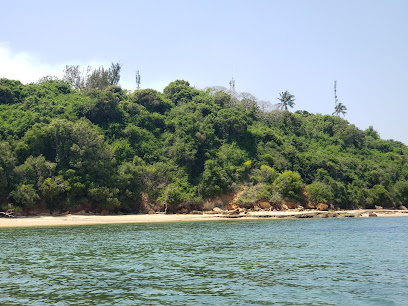
Praça Digital do Jardim Municipal do Distrito KaNyaka
Discover tranquility at Praça Digital do Jardim Municipal do Distrito KaNyaka, a lush garden in Inhaca perfect for relaxation and nature appreciation.
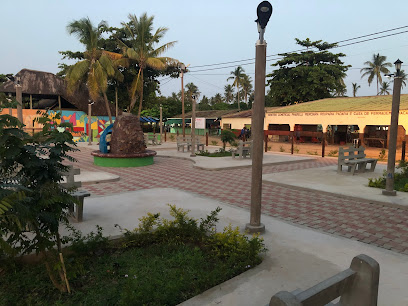
Turtle beach
Experience the serene beauty of Turtle Beach on Inhaca Island, where pristine sands meet crystal-clear waters, perfect for relaxation and adventure.
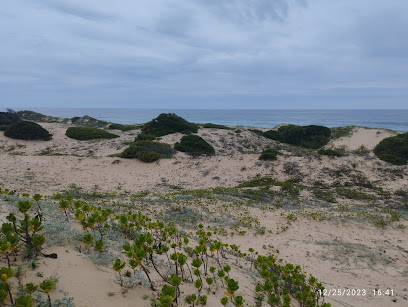
Ridjene Village Center and Garden
Discover the serene beauty of Ridjene Village Center and Garden on Inhaca Island, a perfect spot for relaxation and nature exploration.
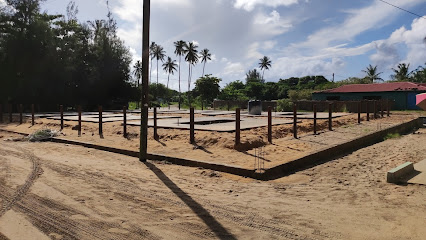
Recife de corais de Santa Maria
Explore the vibrant Santa Maria Coral Reef in Maputo Bay, a stunning underwater paradise perfect for snorkeling and diving enthusiasts in Mozambique.
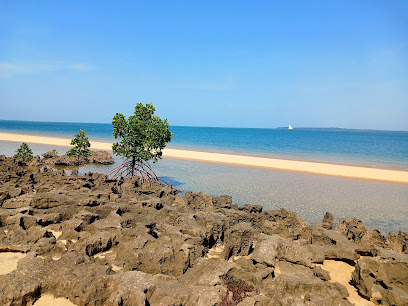
Praia de Chinhambanine
Explore the breathtaking Praia de Chinhambanine, a serene beach on Inhaca Island, Mozambique, perfect for relaxation and adventure in nature's embrace.

Landscape Viewpoint of Punta Torres
Discover the stunning views and tranquil beauty of Punta Torres, a hidden gem on Inhaca Island, perfect for nature lovers and photographers.
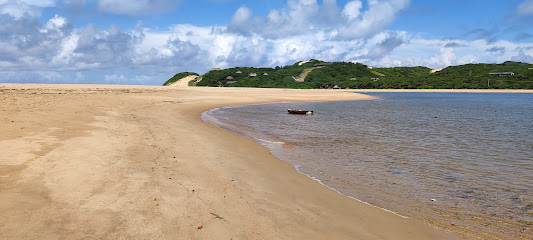
Landscape Viewpoint to Turtle beach
Discover the stunning landscape viewpoint to Turtle Beach, a serene escape offering picturesque views and a tranquil atmosphere on Inhaca Island.
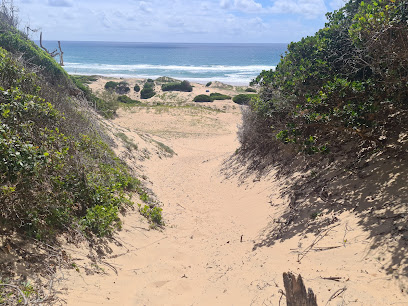
Mount Botelho
Explore the breathtaking views and rich biodiversity at Mount Botelho on Inhaca Island, a must-visit tourist attraction in Mozambique.

Reserva municipal
Explore the serene landscapes and rich biodiversity of Reserva Municipal in Inhaca, Mozambique, a paradise for nature lovers and adventure seekers.
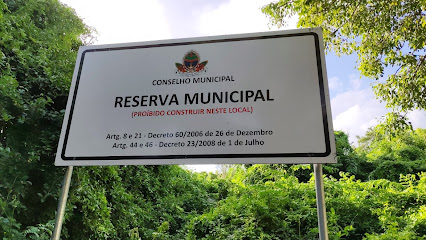
Crystal Water Beach
Experience the tranquil beauty of Crystal Water Beach at Maputo Bay, where golden sands and turquoise waters create a perfect coastal escape.

Essential places to dine
Restaurante Lucas
Discover authentic Mozambican cuisine at Restaurante Lucas in Inhaca – a culinary delight amidst stunning coastal views.
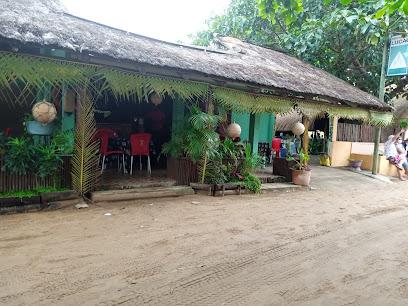
Portuguese Island beach
Explore Portuguese Island Beach: A tranquil oasis of sun-kissed sands and vibrant marine life awaits in Mozambique's picturesque Inhaca region.
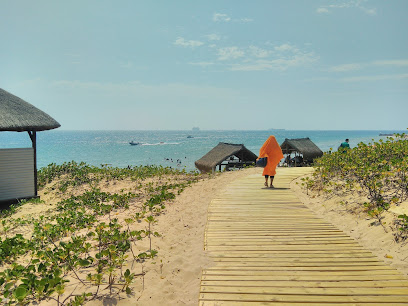
Nhonguane Lodge
Experience tranquility and natural beauty at Nhonguane Lodge on Santa Maria Peninsula – your perfect escape in Mozambique.

Manico Camp
Discover tranquility at Manico Camp on Inhaca Island – your gateway to adventure amidst stunning natural beauty.
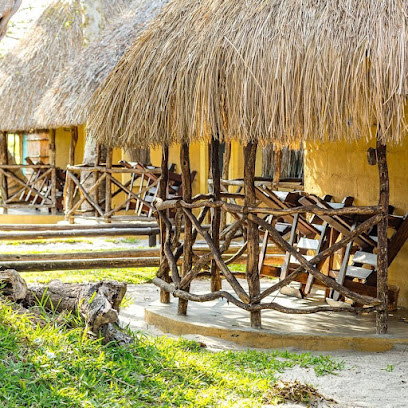
Mamas Lodge
Discover tranquility at Mamas Lodge on Inhaca Island - where comfort meets adventure amidst breathtaking natural beauty.

Kanimambo Lodge
Discover Kanimambo Lodge on Inhaca Island: A tranquil escape with stunning views, exceptional hospitality, and unforgettable adventures.
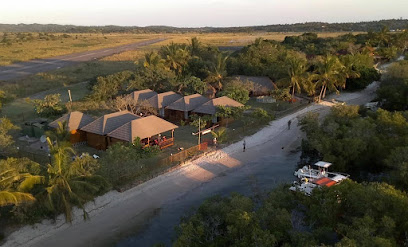
Erca Bar, Restaurant & Pub And Everything
Experience vibrant dining at Erca Bar, Restaurant & Pub in Inhaca with local flavors and lively atmosphere perfect for any traveler.
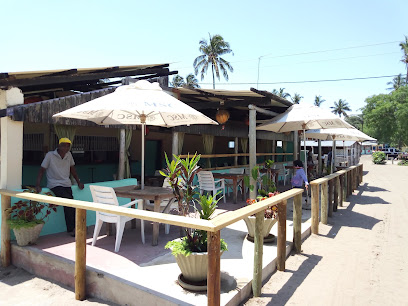
KEMBAKO (Beach Bar & Grill)
Experience KEMBAKO: A stunning beach bar & grill in Inhaca offering fresh seafood and breathtaking ocean views.
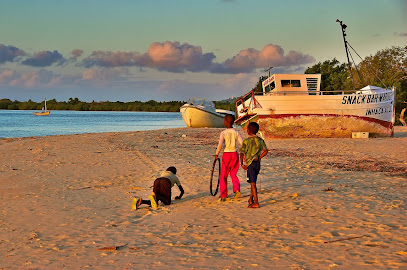
Restaurante Calor Tropical
Discover the vibrant tastes of Mozambique at Restaurante Calor Tropical on Ilha de Nhaca – a culinary paradise for all food lovers.
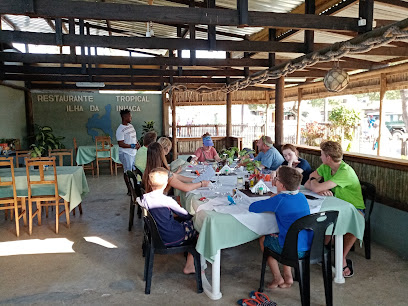
Camp Mad Marlin
Discover serenity at Camp Mad Marlin - your ultimate lodge escape on Inhaca Island with stunning views and warm hospitality.
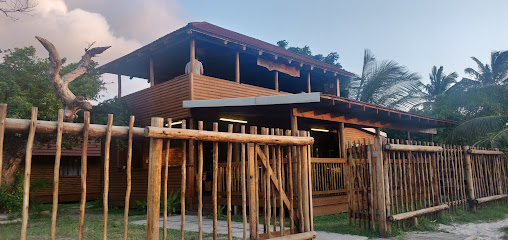
SUNSET DECK , Bemugi's place Santa Maria
Discover culinary delights and breathtaking views at Sunset Deck, Bemugi's Place in Santa Maria - your perfect coastal getaway.
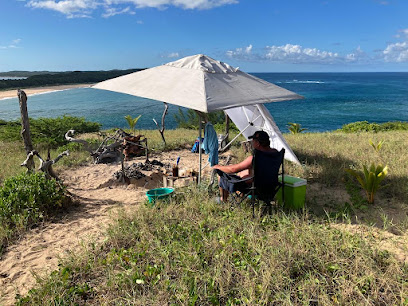
Calor Tropical Chalets
Discover relaxation and exquisite dining at Calor Tropical Chalets on Ilha de Inhaca - your gateway to Mozambique's tropical paradise.
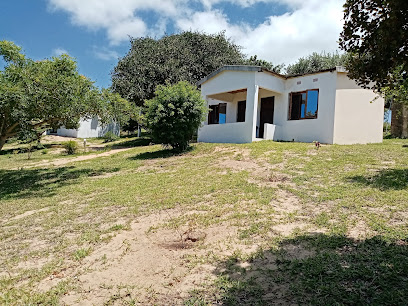
Markets, malls and hidden boutiques
Fernando Nhaca Lodge
Experience the serene beauty of Fernando Nhaca Lodge on Ilha De Inhaca, where relaxation meets adventure in a tropical paradise.
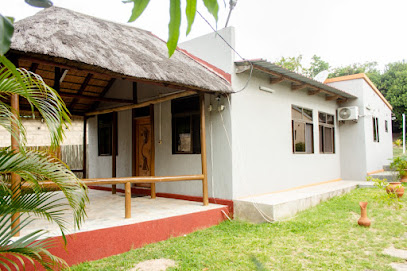
Nahyeeni Lodge
Experience tranquility and adventure at Nahyeeni Lodge, your perfect retreat in the heart of Inhaca, Mozambique.
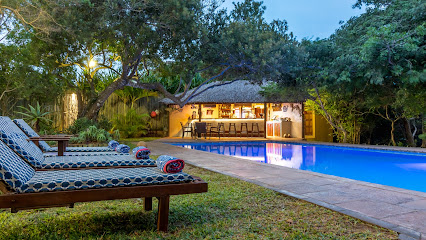
Nhoxani Beach Villas
Escape to Nhoxani Beach Villas, where self-catering comfort meets the stunning beauty of the Santa Maria Peninsula in Mozambique.
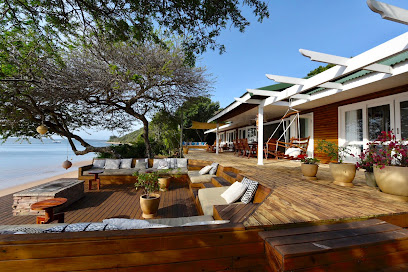
Kanimambo Lodge
Discover the serene beauty of Inhaca Island at Kanimambo Lodge, where adventure meets relaxation in a stunning coastal paradise.
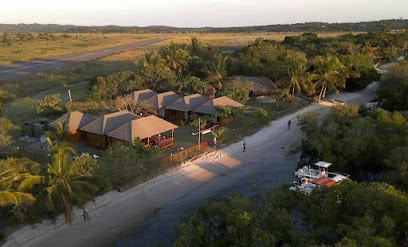
Mamas Lodge
Discover the tranquil beauty of Mamas Lodge on Inhaca Island, where comfort meets nature in a stunning oceanfront setting.
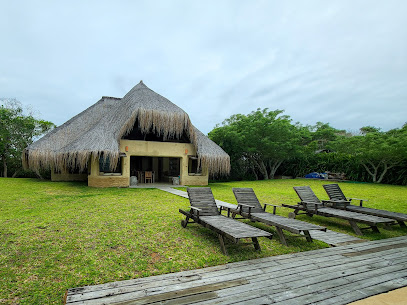
Tajiri - Home & Decor
Discover unique handcrafted gifts and decor at Tajiri - Home & Decor in Maputo, where local culture meets exquisite craftsmanship.
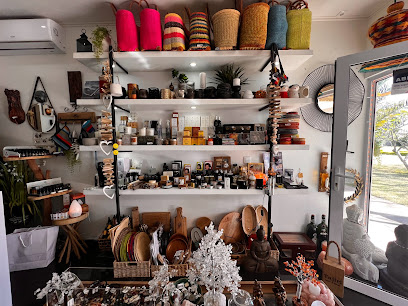
Camp Mad Marlin
Experience the serene beauty of Inhaca Island at Camp Mad Marlin, where adventure meets relaxation in a picturesque lodge setting.
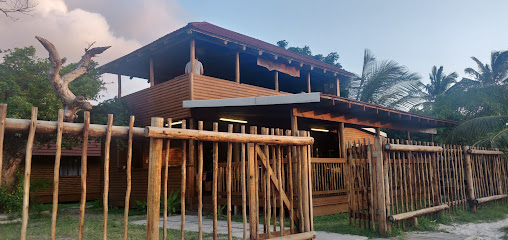
Chamfuta Villa
Experience tranquility and adventure at Chamfuta Villa, a serene retreat on beautiful Inhaca Island, Mozambique.
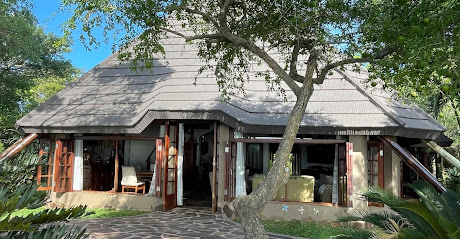
Cigar Boutique
Discover the world of premium cigars at Cigar Boutique, Maputo's premier destination for cigar lovers, offering expert guidance and an exquisite selection.
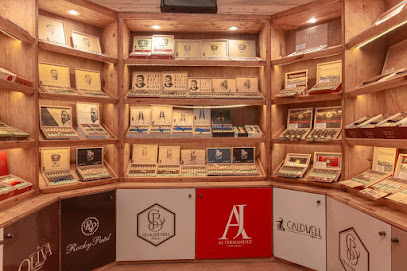
Dgiftery
Explore Dgiftery Gift Shop in Maputo for unique local crafts and souvenirs that capture the spirit of Mozambique.
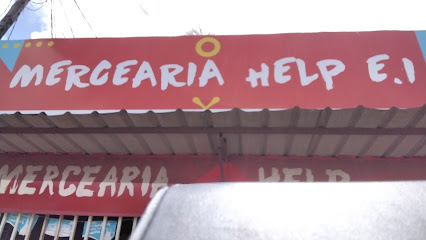
Jangada Solta
Explore Jangada Solta in Maputo for unique handcrafted gifts and local treasures that embody the spirit of Mozambique.
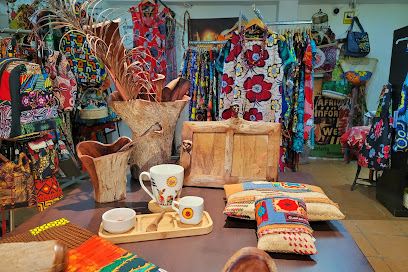
Eukfaço
Explore Eukfaço in Maputo for authentic Mozambican crafts, from textiles to artwork, embodying the rich culture and creativity of the region.
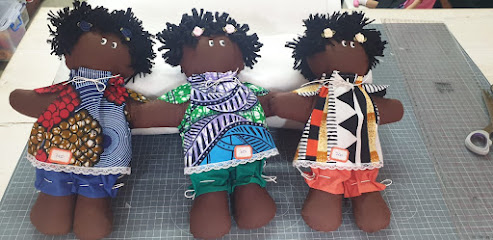
Padaria
Discover the flavors of Inhaca at Padaria, a charming bakery offering fresh local treats in a cozy atmosphere.

Supermercado
Explore the vibrant local market at Supermercado in Inhaca, where fresh produce and unique snacks await every traveler.

Loja de impressão
Explore the artistic spirit of Inhaca at Loja de Impressão, a charming print shop offering unique local prints and cultural experiences.
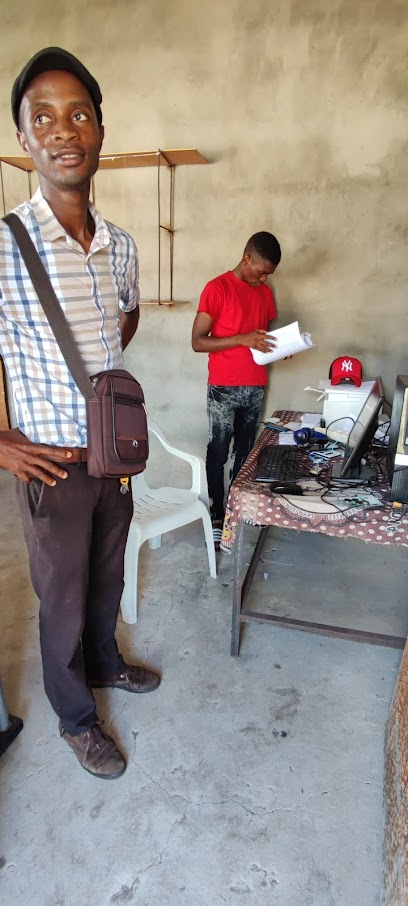
Essential bars & hidden hideouts
Restaurante Lucas
Experience the vibrant flavors of Mozambique at Restaurante Lucas, a culinary haven in Inhaca with delicious local dishes and a welcoming atmosphere.
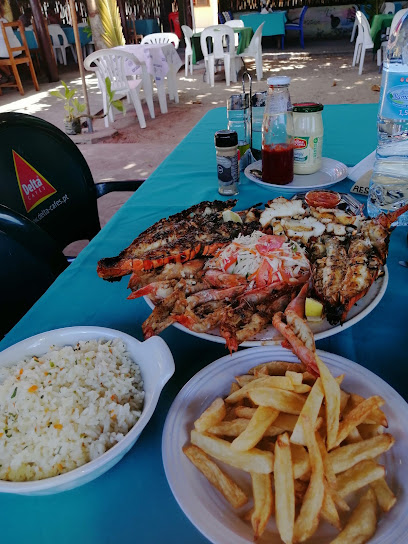
Portuguese Island beach
Experience the serene beauty and vibrant marine life at Portuguese Island Beach, a tropical paradise in Mozambique perfect for relaxation and adventure.
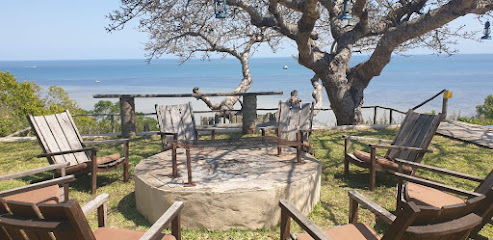
Nahyeeni Lodge
Discover the serene beauty of Nahyeeni Lodge in Inhaca, Mozambique - your perfect escape for relaxation and adventure in nature's paradise.
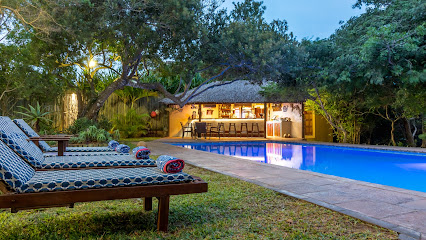
Nhoxani Beach Villas
Experience the idyllic beauty and comfort of Nhoxani Beach Villas on Santa Maria Peninsula, a perfect getaway for relaxation and adventure.
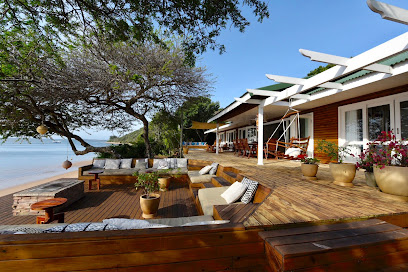
Mamas Lodge
Experience the tranquility of Mamas Lodge on Inhaca Island, where comfort meets adventure in a stunning natural setting.

Kanimambo Lodge
Discover tranquility and adventure at Kanimambo Lodge, your gateway to the stunning beauty of Inhaca Island's beaches and marine life.
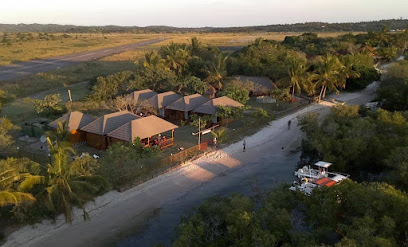
Erca Bar, Restaurant & Pub And Everything
Discover the vibrant flavors of Inhaca Island at Erca Bar, Restaurant & Pub, where local cuisine meets breathtaking coastal views.
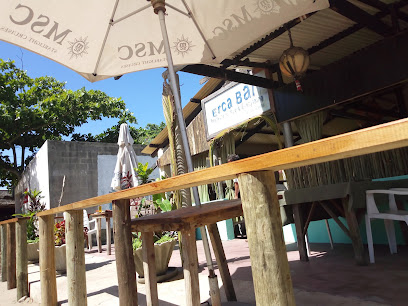
KEMBAKO (Beach Bar & Grill)
Experience the vibrant atmosphere and delicious cuisine at KEMBAKO, the ultimate beach bar & grill on Inhaca Island, Mozambique.
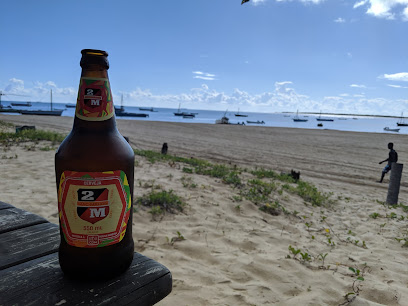
Restaurante Calor Tropical
Experience the vibrant flavors of Mozambican cuisine at Restaurante Calor Tropical on Ilha de Nhaca, a culinary gem with stunning ocean views.
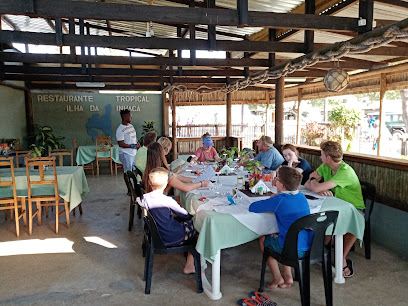
SUNSET DECK , Bemugi's place Santa Maria
Experience vibrant local culture and breathtaking sunsets at Sunset Deck, a perfect blend of relaxation and culinary delight in Santa Maria.
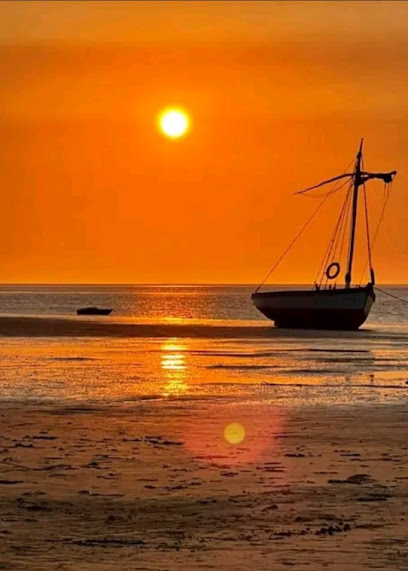
Calor Tropical Chalets
Experience the serene beauty and culinary delights of Calor Tropical Chalets on Ilha de Inhaca, where relaxation meets local flavor.
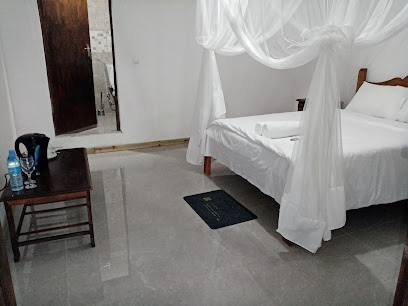
Cross Roads Pub
Discover the vibrant Cross Roads Pub on Inhaca Island, where exquisite cocktails and a lively atmosphere create unforgettable moments.
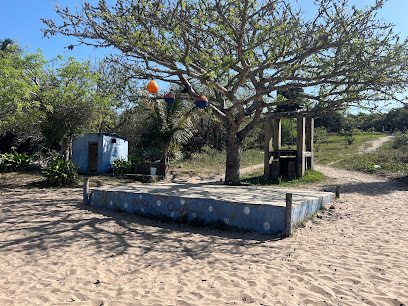
Bar do Tembe
Experience the vibrant culture and refreshing drinks at Bar do Tembe, a tropical bar oasis on Inhaca Island, perfect for relaxation and socializing.

Local Phrases about Inhaca Island
-
- HelloOlá
[oh-lah] - GoodbyeAdeus
[ah-deh-oos] - YesSim
[seem] - NoNão
[now] - Please/You're welcomePor favor
[por fah-vohr] - Thank youObrigado
[oh-bree-gah-doo] - Excuse me/SorryCom licença
[kohm lee-sen-sah] - How are you?Como está?
[koh-moh ehs-tah] - Fine. And you?Bem. E você?
[behn. eh vo-say] - Do you speak English?Fala inglês?
[fah-lah een-glehsh] - I don't understandNão entendo
[now ehn-ten-doo]
- HelloOlá
-
- I'd like to see the menu, pleaseGostaria de ver o menu, por favor
[goh-stah-ree-ah deh vehr oh meh-noo, por fah-vohr] - I don't eat meatEu não como carne
[eh-oo now koh-moh kahr-neh] - Cheers!Saúde!
[sah-oo-deh] - I would like to pay, pleaseGostaria de pagar, por favor
[goh-stah-ree-ah deh pah-gahr, por fah-vohr]
- I'd like to see the menu, pleaseGostaria de ver o menu, por favor
-
- Help!Ajuda!
[ah-zhoo-dah] - Go away!Vá embora!
[vah ehm-boh-rah] - Call the Police!Chame a polícia!
[shah-meh ah poh-lee-see-ah] - Call a doctor!Chame um médico!
[shah-meh oon meh-dee-koh] - I'm lostEstou perdido
[ehs-toh pehr-dee-doo] - I'm illEstou doente
[ehs-toh doo-ehn-teh]
- Help!Ajuda!
-
- I'd like to buy...Gostaria de comprar...
[goh-stah-ree-ah deh kohm-prahr] - I'm just lookingEstou só olhando
[ehs-toh soh oh-lhahn-doo] - How much is it?Quanto custa?
[kwahn-too koos-tah] - That's too expensiveIsso é muito caro
[ee-soh eh mwee-toh kah-roo] - Can you lower the price?Pode baixar o preço?
[poh-deh bahy-shahr oh preh-soh]
- I'd like to buy...Gostaria de comprar...
-
- What time is it?Que horas são?
[keh oh-rahz sah-ooh] - It's one o'clockÉ uma hora
[eh oo-mah oh-rah] - Half past (10)Meio-dia e meia
[meh-oo jee-ah e may-ah] - MorningManhã
[mah-nyah] - AfternoonTarde
[tahr-djee] - EveningNoite
[noy-chee] - YesterdayOntem
[ohn-tehm] - TodayHoje
[oh-jee] - TomorrowAmanhã
[ah-mah-nyah] - 1Um
[oom] - 2Dois
[doh-ees] - 3Três
[trehs] - 4Quatro
[kwah-troh] - 5Cinco
[seen-koh] - 6Seis
[saysh] - 7Sete
[seh-teh] - 8Oito
[oy-toh] - 9Nove
[noh-veh] - 10Dez
[dehz]
- What time is it?Que horas são?
-
- Where's a/the...?Onde está o/a...?
[ohn-deh ehs-tah oh/ah] - What's the address?Qual é o endereço?
[kwahl eh oh ehn-deh-reh-soh] - Can you show me (on the map)?Pode me mostrar (no mapa)?
[poh-deh meh moh-strahr (noo mah-pah)] - When's the next (bus)?Quando é o próximo (ônibus)?
[kwahn-doo eh oh proh-see-moh (oh-nee-boos)] - A ticket (to ....)Um bilhete (para ....)
[oom bee-lheh-teh (pah-rah)]
- Where's a/the...?Onde está o/a...?
History of Inhaca Island
-
Long before the arrival of European explorers, Inhaca Island was home to various indigenous communities. These early inhabitants lived off the land and sea, thriving on fishing, hunting, and gathering. Archaeological evidence suggests that the island was a hub of activity, with tribes trading goods and sharing cultural practices. The rich biodiversity of the island supported these communities, allowing them to establish a sustainable way of life.
-
In the early 16th century, Portuguese explorers arrived on Inhaca Island during their quest to establish a sea route to India. The island served as a strategic stopover point for these maritime expeditions. The Portuguese influence is still evident today, with remnants of their presence found in the form of old fortifications and navigational aids. This period marked the beginning of European interest in the island, which would shape its future in significant ways.
-
During the late 19th and early 20th centuries, Inhaca Island became part of the broader Portuguese colonial empire in Mozambique. The island was utilized for various colonial enterprises, including agriculture and trade. The colonial era brought significant changes to the local culture and economy, as traditional practices were influenced by European customs and technologies. This period also saw the establishment of administrative structures that governed the island's affairs.
-
Inhaca Island played a unique role during World War II. The island's strategic location in the Indian Ocean made it an ideal spot for monitoring naval activities. Allied forces used the island as a lookout point for German U-boats and other enemy vessels. The remnants of wartime structures and equipment can still be found on the island, serving as a poignant reminder of its contribution to the global conflict.
-
Following Mozambique's independence from Portuguese rule in 1975, Inhaca Island underwent a period of transformation. The island saw efforts to develop its infrastructure, with investments in tourism and marine research. The establishment of the Marine Biological Research Station in the 1970s marked a significant step in promoting the island's ecological significance. Today, Inhaca Island is renowned for its vibrant marine life and serves as a key destination for researchers and tourists alike.
-
Inhaca Island is a melting pot of cultures, with influences from indigenous traditions, Portuguese colonization, and modern Mozambique. The island's residents celebrate a variety of festivals and ceremonies that reflect this rich cultural tapestry. Traditional music, dance, and cuisine are integral parts of life on Inhaca Island. Visitors can experience firsthand the island's cultural heritage through local events and interactions with the warm and hospitable community.
-
Inhaca Island is renowned for its exceptional biodiversity and ecological importance. The island's surrounding waters are home to diverse marine species, including coral reefs, dolphins, and migratory birds. Conservation efforts have been implemented to protect this unique environment, with several marine reserves established to ensure the sustainability of its natural resources. The island serves as a crucial site for scientific research and environmental education, highlighting the need for ongoing preservation.
Inhaca Island Essentials
-
Inhaca Island is located off the coast of Maputo, Mozambique. The most common way to reach the island is by ferry or boat from Maputo. Ferries usually depart from the Maputo Marina and the journey takes around 1.5 to 2 hours. Alternatively, you can charter a private boat for a more flexible schedule. For a quicker option, there are small charter flights available from Maputo International Airport to Inhaca Island's airstrip, which takes about 15 minutes.
-
Once on Inhaca Island, transportation options are limited. Walking is the most common and practical way to get around, given the island's small size. For longer distances, you can rent a bicycle or arrange for a local guide with a 4x4 vehicle. Water taxis and boats are available for trips to nearby islands and snorkeling spots. Make sure to arrange transportation in advance, especially during peak tourist seasons.
-
The official currency in Mozambique is the Mozambican Metical (MZN). On Inhaca Island, cash is the preferred method of payment, as credit card facilities are limited. It is advisable to bring sufficient cash with you from Maputo, as there are no ATMs on the island. Some lodges and restaurants may accept US dollars or South African Rand, but this is not guaranteed.
-
Inhaca Island is generally safe for tourists, but it is always wise to exercise basic precautions. Avoid walking alone at night, especially in secluded areas. Be cautious with your belongings in crowded places and keep valuables secure. While crime rates on the island are low, it is still important to stay vigilant and aware of your surroundings. Petty theft can occur, particularly in tourist-heavy areas.
-
In case of emergency, contact local authorities or your accommodation provider for assistance. The island has a small medical clinic for minor health issues, but for serious medical emergencies, evacuation to Maputo may be necessary. It is highly recommended to have comprehensive travel insurance that covers medical emergencies and evacuation. The emergency contact number in Mozambique is 119 for police and 117 for medical emergencies.
-
Fashion: Do wear casual and comfortable clothing, suitable for the tropical climate. Avoid overly revealing attire, especially in village areas. Religion: Do respect local customs and traditions. If visiting any religious sites, dress modestly. Public Transport: Do be patient, as transport schedules can be flexible. Don't expect luxury or punctuality. Greetings: Do greet locals with a friendly 'Bom dia' (Good morning) or 'Boa tarde' (Good afternoon). A handshake is a common form of greeting. Eating & Drinking: Do try local seafood and traditional dishes. Don't refuse food or drink if offered, as it is considered polite to accept.
-
To experience Inhaca Island like a local, visit the local markets where you can purchase fresh seafood and handmade crafts. Engage with the island's residents, who are often friendly and eager to share stories about their culture and history. Don't miss out on visiting the Marine Biology Museum and exploring the nearby Portuguese Island for a more in-depth understanding of the local marine life. For an authentic experience, participate in a traditional dhow sailing trip.
Trending Landmarks in Inhaca Island
-
Island of Mozambique
-
Casa de Ferro
-
BEMUGI'S PLACE restaurants boats accommodation
-
Machangulo Beach Lodge
-
Fernando Nhaca Lodge
-
Nahyeeni Lodge
-
Inhaca Island Snorkel Reserve
-
Nhoxani Beach Villas
-
Manico Camp
-
Mamas Lodge
-
Kanimambo Lodge
-
Balistidae at Nhoxani
-
Erca Bar, Restaurant & Pub And Everything
-
Pestana Inhaca Hotel
-
Farol de Inhaca
Nearby Cities to Inhaca Island
-
Things To Do in Matola
-
Things To Do in Mhlume
-
Things To Do in Big Bend
-
Things To Do in Manzini
-
Things To Do in Mbabane
-
Things To Do in Malkerns
-
Things To Do in Nelspruit
-
Things To Do in Maxixe
-
Things To Do in Inhambane
-
Things To Do in Polokwane
-
Things To Do in Durban
-
Things To Do in Pretoria
-
Things To Do in Johannesburg
-
Things To Do in Vilanculos
-
Things To Do in Mokhotlong





